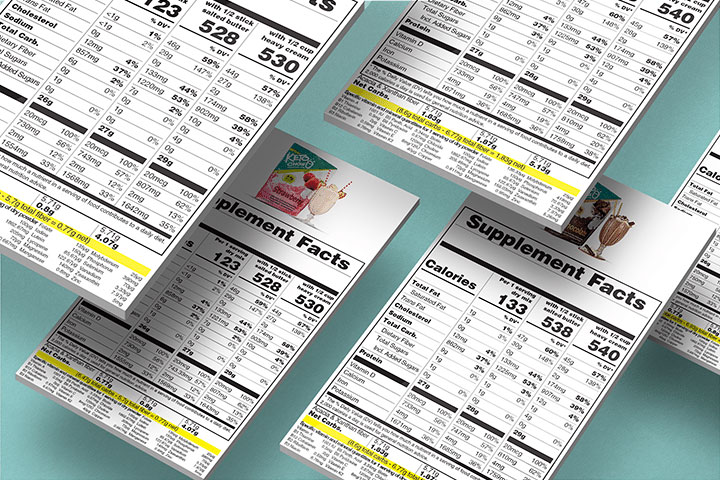By keeping insulin lower and glucagon higher, low-carb diets facilitate the breakdown of fat and using fat for fuel. So what does keto do to your metabolism? Exactly what you want it to do if you’re trying to lose weight.
The word metabolism comes up a lot in the keto world, particularly around weight loss. Some folks seem to have a “fast metabolism” and don’t gain weight even when they eat a lot of high-carb foods, while others have a slower metabolism and have to work hard to lose weight even on a keto diet. But what exactly is metabolism, and how does keto affect it?
Defining Metabolism

When you see or hear the word metabolism, think energy. According to Mayo Clinic, “Metabolism is the process by which the body changes food and drink into energy.” A paper in a biochemistry journal notes, “The process of metabolism involves many interconnected cellular pathways to ultimately provide cells with the energy required to carry out their function.”
Just about everything that happens in your body requires energy, even when you’re relaxing on the couch. You don’t use energy only when you’re sprinting or lifting weights.
It takes energy to keep your heart pumping, to send nerve impulses, to maintain the electrochemical gradient of sodium and potassium across your cell membranes, and an endless list of other processes going on inside you 24/7 without you even knowing about them.
How Keto Affects Metabolism

Keto is often referred to as a “fasting-mimicking diet” owing to how this way of eating influences hormones and biochemical pathways involved in converting food into energy and how the body uses that energy.
During a fast, since no energy source (food) comes in from the outside, the body taps into its stored energy source – your body fat. The two main signals that make this happen are a very low insulin level and a higher level of a hormone called glucagon. In nutrition research, the “fasted state” is characterized by glucagon dominating over insulin while the “fed state” is characterized by insulin dominating over glucagon.
Various things can raise insulin, but the most potent is dietary carbohydrate.
Keto mimics the hormonal effects of fasting because when your carbohydrate intake is very low, insulin remains low most of the time and glucagon dominates. Insulin still rises after meals on a low-carb diet (especially a protein-rich meal), but typically not as much as on a high-carb diet. And with insulin lower and glucagon higher, you experience some of the effects of fasting even though you’re eating.
Easier to Burn Fat

There’s a reason so many people find it easier to lose weight on a keto diet compared to other approaches they tried in the past, like low-fat diets or counting calories. Much of this comes down to insulin.
If you’re used to thinking of insulin primarily as a blood sugar hormone, think again. Lowering blood sugar is only one of many other functions of insulin. Another one is inhibiting lipolysis. (That’s the nerdy biochem textbook way of saying that it gets in the way of breaking down fat.)
And when you’re looking to lose weight, what you really want to lose is fat. And in order to lose fat, you have to burn fat (use it for fuel), and in order for that to happen, the stored fat first has to be broken down and released from the fat cells so it can be used somewhere else in your body.
In my book, End Your Carb Confusion, I wrote that insulin is like a security guard that stands outside your fat cells to make sure none of the fat escapes. (On the contrary, glucagon promotes the breakdown of fat.)
So, what does that mean?

On a low-carb or keto diet, since your insulin level is lower most of the time, it’s easier for your fat cells to release the fat so you can use it for energy. In fact, on a keto diet, fat becomes your body’s primary fuel source, with some glucose still being used and ketones available as an additional energy source.
Articles about keto diets sometimes say that this way of eating “forces” your body to burn fat – as if that’s a bad thing! But when you’re trying to lose weight, this is exactly what you want! So it might be better stated that cutting way back on carbs helps your body to burn fat, or that keto facilitates burning fat. That would certainly change the tone of the conversation!
What About Metabolic Rate?

Does keto speed up your metabolism? This is the zillion-dollar question, right? Considering the astounding amount of weight some people lose on keto, you might think this is a no-brainer, and that yes, of course keto boosts your metabolic rate. But the research isn’t quite that clear.
Researchers from Harvard University have determined that low-carb diets do actually increase metabolic rate, but the degree of increase might not make that big a difference for weight loss.
It was found that for every 10 percent decrease in carbs as a percentage of total caloric intake, metabolic rate increased as much as 50 calories per day. So, if you started on a high-carb diet and cut carbs so that they were 30 percent less of your total calories, you might burn about 150 more calories per day.
That’s not nothing, but considering one tablespoon of butter gives you 100 calories, it’s pretty easy to negate this difference with a generous pat of butter on your steak or a heavy hand pouring cream into your coffee.
That being said, eating keto might make it easier to maintain weight loss over the long term. (Assuming you stick with it, of course.) This is the holy grail of weight loss: keeping the weight off! (What good is it to lose weight only to end up back where you started a few months or years later?)
An example of this

In a study of people who were overweight or obese, subjects were put on a low-calorie diet (45% carbs) to lose ten percent or more of their body weight. After the weight loss, they were randomized into three different diets intended to help them maintain the weight loss: high-carb (60% carbs), moderate-carb (40% carb), or low-carb (20% carbs).
Compared to the high-carb diet, people on the low-carb diet showed an increase in energy expenditure (calories burned) of as much as 200-300 calories a day. That amount could make a difference over the long term.
But don’t count on that happening to you on keto. One thing we know about diet studies is there’s a ton of individual variation. Some people experience much greater effects than others. You’re a unique individual, not an average, so don’t expect that what was shown in a study is automatically what will happen for you.
Bottom Line

By keeping insulin lower and glucagon higher, low-carb diets facilitate the breakdown of fat and using fat for fuel. So what does keto do to your metabolism? Exactly what you want it to do if you’re trying to lose weight. And if you’ve lost weight on a keto diet, stay low-carb to give yourself the best chance of keeping the weight off for the long term.
Want to stay energized with a filling, low-carb meal?
Then check out Keto Chow! Keto Chow is a keto meal shake with 25+ delicious flavors. It has 1/3 of your daily recommended nutrients, including protein, vitamins, minerals, etc., and it can be made in seconds!



























